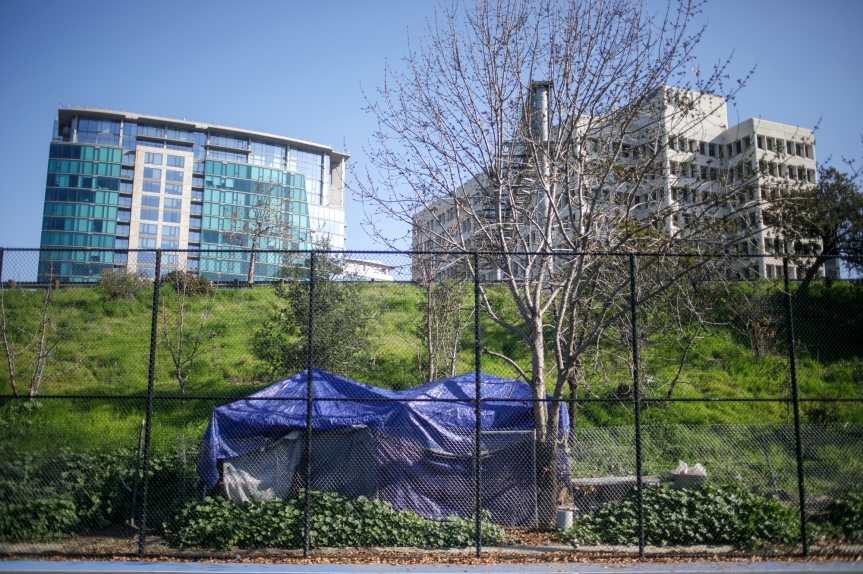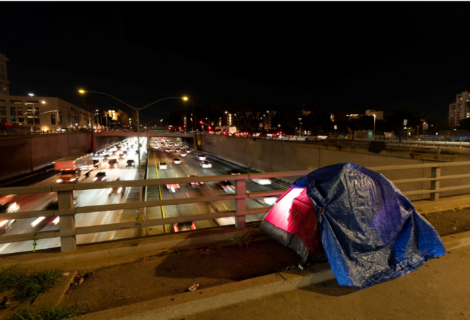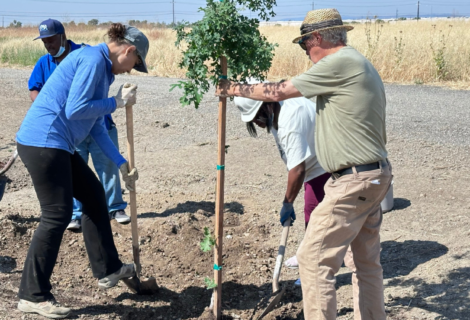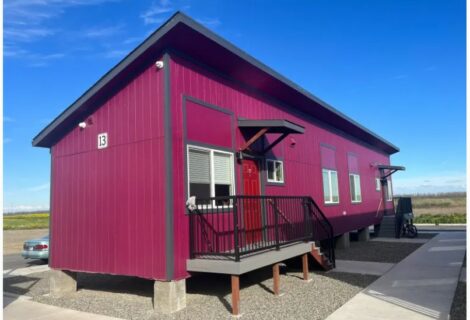COULD BETTING ON SPORTS GAMES HELP SOLVE CALIFORNIA’S HOMELESSNESS CRISIS?
California voters could decide this November
California voters could make it legal to wager on sports games this year while also taking a big step forward in the state’s fight against homelessness.
Four sports betting measures proposed for the November ballot could raise anywhere from tens of millions to hundreds of millions of dollars a year in taxes, licensing fees and other contributions. Three promise to spend at least a portion of that revenue on programs for homelessness and mental health, creating California’s first ongoing revenue stream to target the crisis on our streets. Several big-city mayors – including Oakland’s Libby Schaaf – already are lining up behind the proposal that could bring in the most money to help the Bay Area’s nearly 30,000 unhoused residents.
All but one of the initiatives have yet to qualify for the ballot, but if they do, they face a potentially fierce battle as deep-pocketed gambling interests fight for control of the lucrative new market. And backers will have to contend with voters who may be skeptical about the betting industry’s ability to make a meaningful dent in the deeply entrenched problem of homelessness.
Proponents of the California Solutions to Homelessness and Mental Health Support Act, supported by Schaaf, have raised $100 million and collected more than 25% of the roughly 1.1 million signatures they need by spring to qualify for the ballot.
“Unfortunately, we have a huge homelessness problem in California. And it’s turned into a permanent problem, and we need a permanent source of funding for it,” said Kurt Oneto, legal counsel for the campaign supporting the measure. The initiative is backed by sports betting companies including FanDuel and DraftKings, which would reap significant financial benefits if it passes.
The U.S. Supreme Court ended the federal prohibition on sports betting in 2018, opening the doors for states to legalize the practice. About 30 states have taken that step so far. Although many Californians already bet on sports in unregulated forums, lawmakers failed to come up with a plan to legalize the practice and unite the state’s various gambling interests. As a result, voters may have to wade through competing and confusing measures.
Gambling operations for years have garnered public support by pledging money to social causes – such as the Lottery, which won over Californians in the 1980s by promising to help fund public education. But while the Lottery funnels billions to schools, it has by no means been the silver bullet to fix our education system. Voters know that, and they know how hard homelessness is to solve, said Jack Pitney, a Claremont McKenna College politics professor. That could make it harder to pass sports wagering measures.
“I wouldn’t take this as a sure bet,” Pitney said.
Even so, experts say the extra funding would help. More than half of all people sleeping outside across the U.S. live in California, according to the U.S. Department of Housing and Urban Development. The state has relied on recent budget surpluses to address the massive problem with one-time grants, including $12 billion last year and another $2 billion proposed this year. But experts want ongoing funding that allows aid organizations to run long-term programs without worrying whether their money will dry up.
“We can’t continue to keep working around the edges here and providing short-term solutions to a problem that’s decades in the making,” said Christopher Marin, policy director for the advocacy organization Housing California.
Lawmakers in 2020 tried and failed to establish a long-term funding stream for homelessness. Last year, they tried and failed again with a bill that proposed raising corporate taxes.
The California Solutions to Homelessness and Mental Health Support Act would allow online sports wagering facilitated by Native American tribes or betting operators that contract with them. Operators would be charged a license fee and taxed on wagers, raising sums that could reach the “mid-hundreds of millions of dollars annually,” according to the Legislative Analyst’s Office. Of the money raised, 85% would go toward programs addressing homelessness and mental health, and 15% would be distributed to Native American tribes that aren’t involved in sports wagering.
A competing measure that also would raise money for homelessness and mental health paves the way for online and in-person sports betting run by Native American tribes only. It’s backed by several tribes, including the Federated Indians of Graton Rancheria, which runs a casino in Rohnert Park.
“We believe this measure represents the best path forward for online sports wagering for California, its tribes, residents and communities,” Roger Salazar, spokesman for Californians for Tribal Sovereignty and Safe Gaming, wrote in an emailed statement.
But the amount it would raise is “highly uncertain,” according to the Legislative Analyst’s Office. That’s because under California law, Native American tribes generally can’t be taxed or obligated to give money to the state.
A third ballot measure would allow California’s cardrooms to get involved in sports betting, while also allowing for online wagering. Tax revenue would be divided among programs addressing education, homelessness, affordable housing and mental health.
The fourth – the only initiative that already has qualified for the November ballot – would allow Native American tribes and racetracks to offer in-person sports betting. Most of the money raised by taxing operators would go to the state’s general fund. The measure doesn’t address online wagering.
Tomiquia Moss, chief executive of Bay Area-based advocacy group All Home, supports the California Solutions to Homelessness and Mental Health Support Act.
“It is not the full solution,” she said. “The resources that will be generated from this if it passes are just the beginning of what we actually need to scale the solutions to address homelessness and housing insecurity throughout the state. But I do think it puts a line in the sand.”










Recent Comments